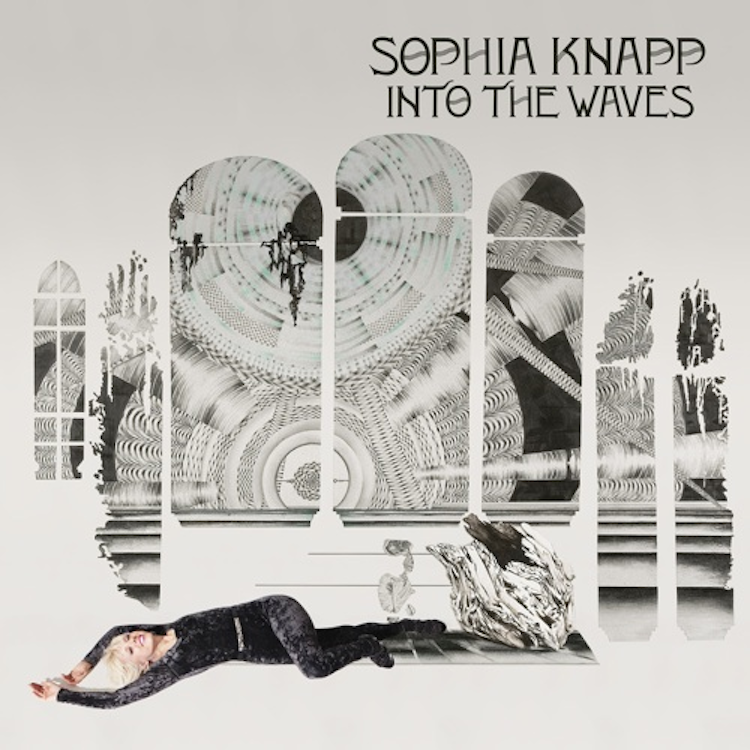"Into the Waves"

Sophia Knapp‘s solo debut on her home label, Drag City, is a peculiar offering. Knapp’s floaty vocal style is lively, creative and appealing – but all too often the songs are deflated by the inexplicable substitution of genuine ambience for soulless polymer pop: drab beats and tinny tinkles. This is a shame, because Knapp’s voice is not at all afflicted by affectation (knocking any spectre of LDR into the most cocked of hats).
Into the Waves has Sophia Knapp singing over the sort of backing that you might expect to create with a keyboard presetting called “70s Pop Soul” or “Kool Jazz 2″. If you’ve ever heard Sheffield hipster and radio raconteur John Shuttleworth performing ‘I Can’t Go Back to Savoury Now’ on the Yamaha, however, you’ll know there’s more emotion to be prised from the keys than is achieved anywhere here.
That said – and despite two duets with labelmate Bill Callahan failing to counter either the oddity or the anaemia – even on the aptly creepy ‘Spiderweb’ – there are signs of life. First track ‘Glasses High’ opens encouragingly. The title song could be an Empire of The Sun single and ‘Close to Me’ breaks out of an early torpor into a meandering but attractive soul/disco/pop pastiche. The strongest song, however, is ‘Nothing to Lose’, where the atmospherics finally equate to atmosphere. It is chilly and shadowy, gentle and arresting. The resultant goodwill just about survives Callahan’s reemergence on the following track, ‘Weeping Willow’, another pretty ballad falling victim to the muzak. Short of timeless cool and shorn of Cliffie Swan’s guitars, Sophia Knapp’s melodic solo set is sunk by its MOR aesthetic.
We are living in a receptive time for albums like the one this seeks to be. Guardian Guide scribe Peter Robinson christened this phenomenon “The New Boring, a ballad-friendly tedial wave destroying everything in its path”. Albeit tongue-in-cheek, it is a useful way to frame the cultural and critical acclaim offered to obvious renaissance acts like Rumer and Duffy in the last few years. How far Knapp intended to tap into this rise of the imitators is unclear – Stevie Nicks is an obvious influence but Knapp’s earlier work is more avant-garde and Into the Waves was supposed to be “a pop vocal record for our time”. The result is rather more an ill-fitting combination of droid-penned autopop and bygone balladry with a Best Before End date circa 1975. For a pop vocal record of our time, try Tracey Thorn, Kathleen Edwards, or indeed Adele. Into the Waves simulates as much as stimulates.
What’s really puzzling is why the album is quite so lacklustre. Into the Waves isn’t all bland by any means, Knapp is more poised than posed, and vanilla doesn’t have to mean vapid – but this is dragged down by a synthetic undertow with overtones of inauthenticity. The overwhelming impression is that of a classy-enough singer suffering from an absence of character in the accompaniment. Intentionally lightweight can be done, singing in a vacuum cannot.
Get the Best Fit take on the week in music direct to your inbox every Friday

Dirty Projectors
Song of the Earth

Black Country, New Road
Forever Howlong

Djo
The Crux





